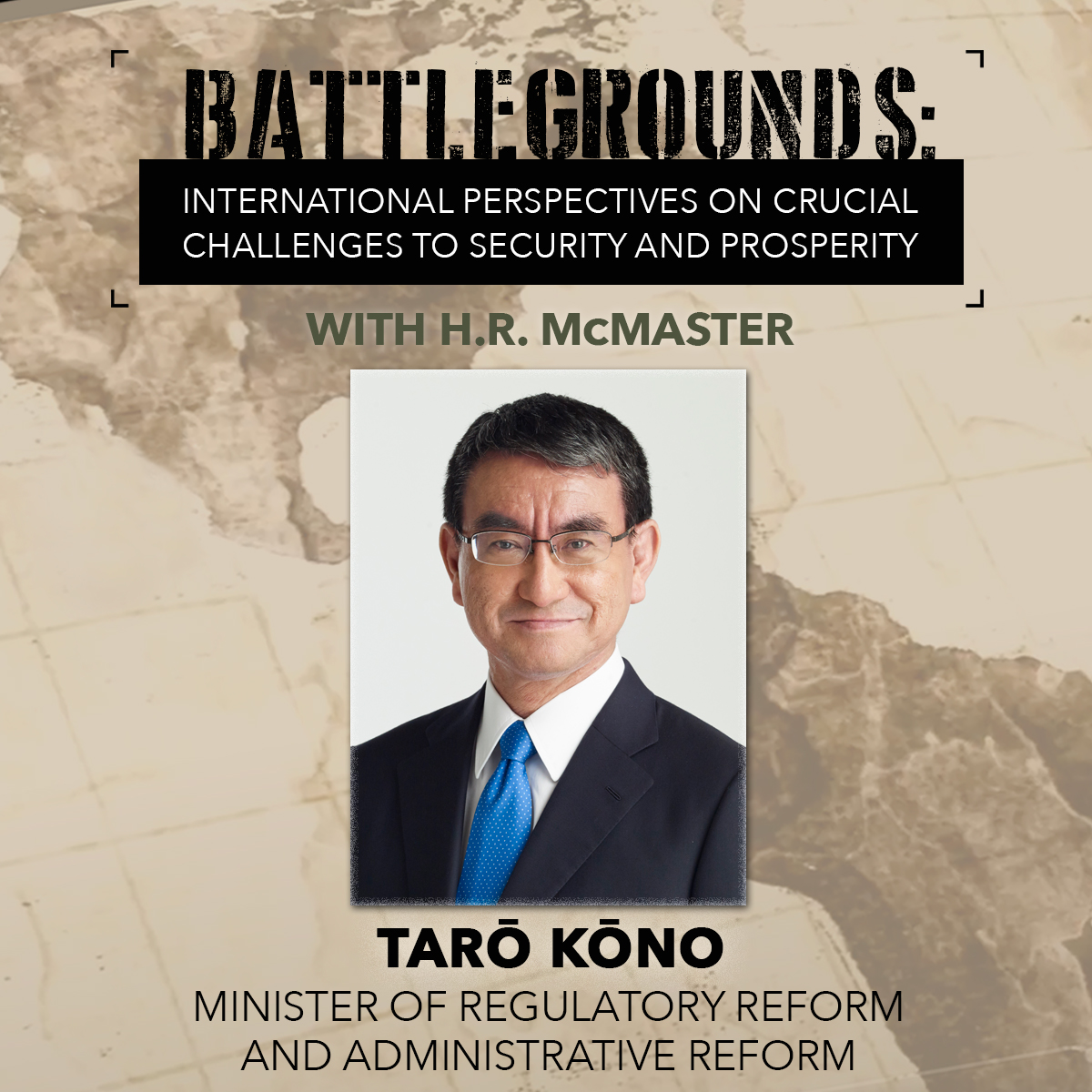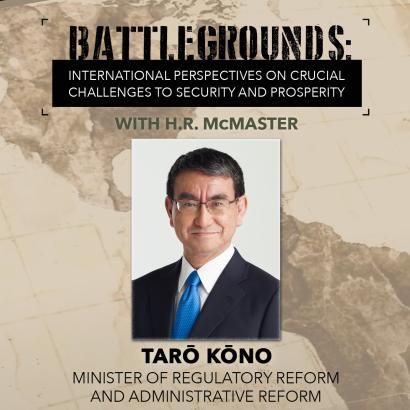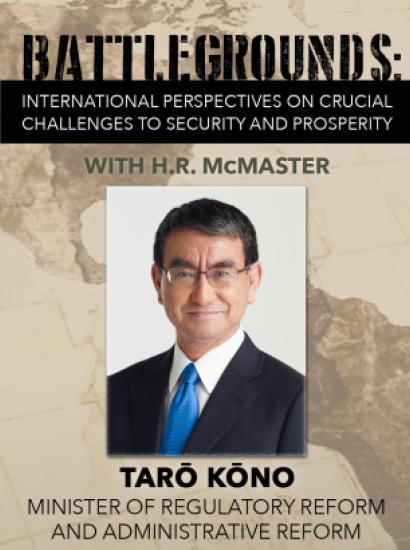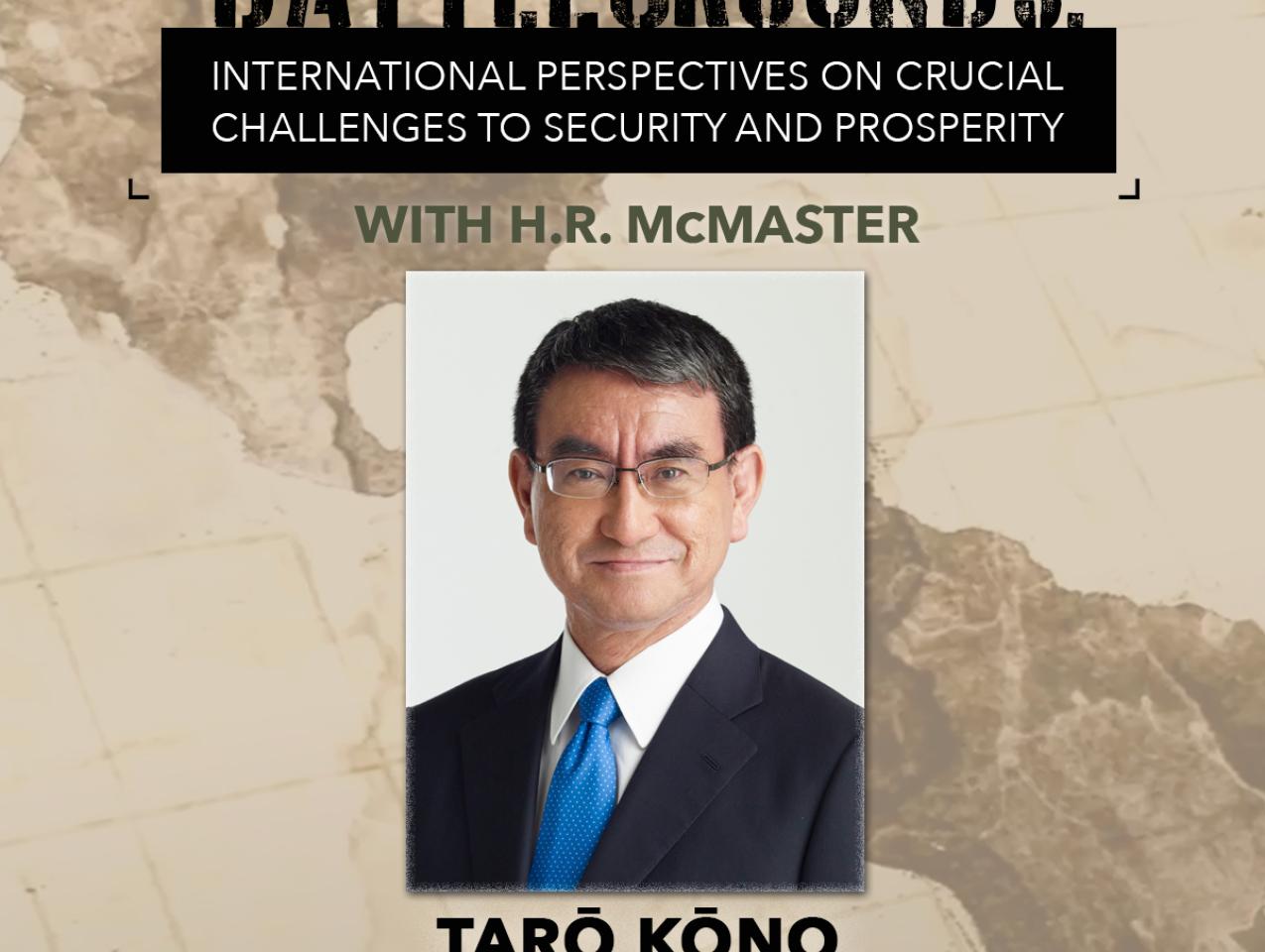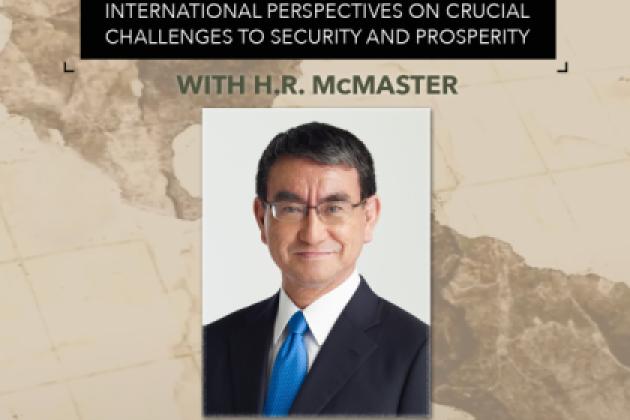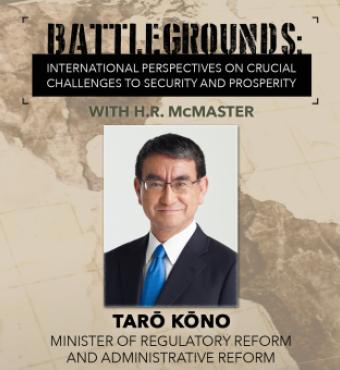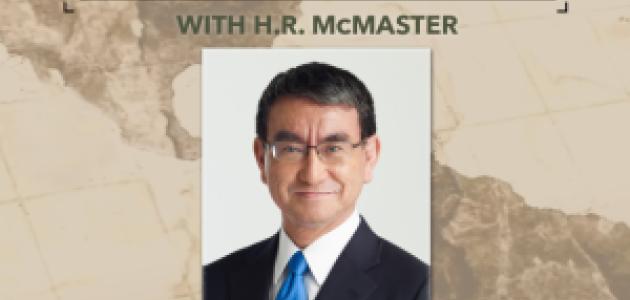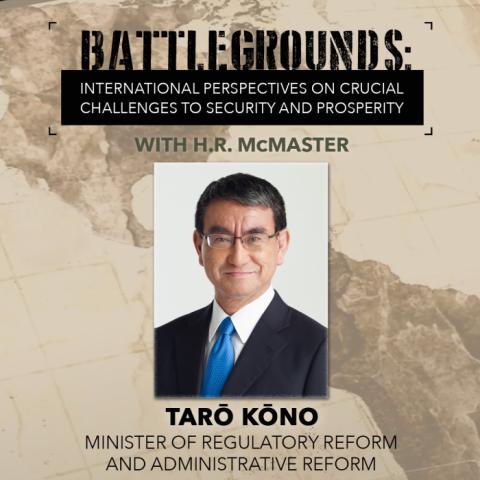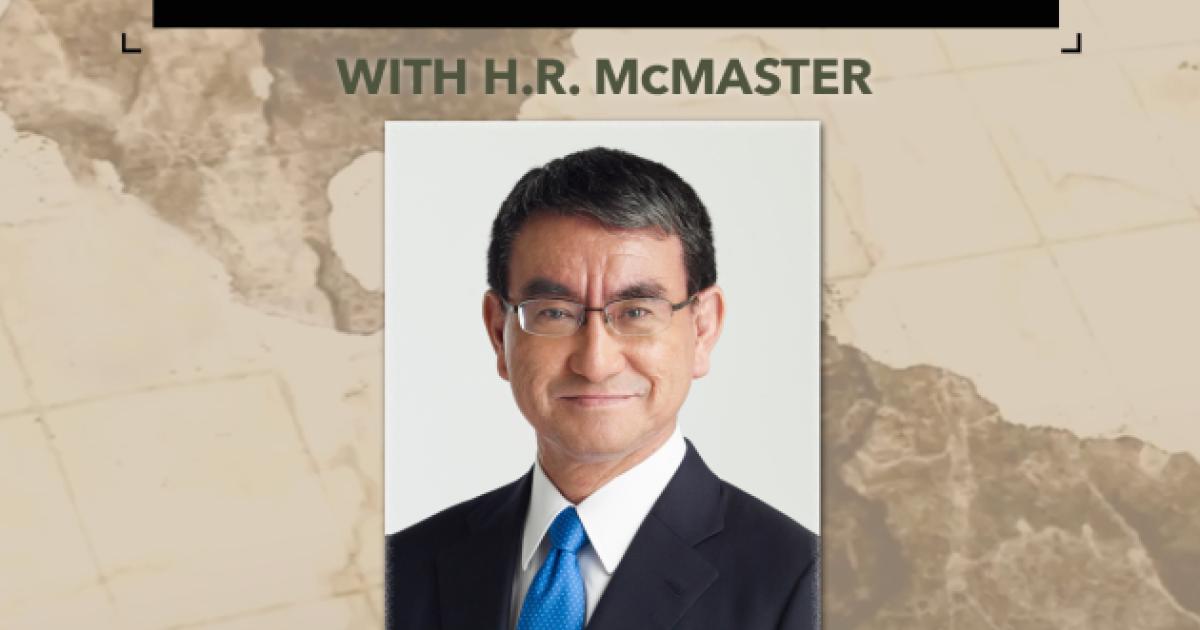Hoover Institution (Stanford, CA) – Japan seeks to work with like-minded partners to prevent malign actors from disturbing peace, prosperity, and stability in the Indo-Pacific region, explained Tarō Kōno, the island country’s current minister for administrative reform and regulatory reform in a virtual conversation with Fouad and Ajami Senior Fellow H. R. McMaster.
The interview with Kōno was the fourth episode in McMaster’s Battlegrounds series, which aims to draw insights about US foreign policy from the standpoint of America’s allies and partners.
A member of Japan’s House of Representatives and Liberal Democratic Party since 1996, Kōno served as minister of foreign affairs (2017–19) and minister of defense (2019–20) in the government of former prime minister Shinzō Abe before assuming his current senior cabinet position under Prime Minister Yoshihide Suga.
Kōno described China’s aggression as the biggest challenge to the region’s security. China’s defense spending is four times that of Japan. The People’s Liberation Army Air Force’s fleet of one thousand fighters is over three times the size of Japan’s Air Self-Defense Force. Consequently, Japan’s southwest airspace has faced mounting pressure from China over the disputed Senkaku Islands in the East China Sea. In the first ninety days of 2020, Japanese aircraft scrambled a total of 150 times in response to Chinese fighters, a rate of nearly twice per day. In early October, Beijing deployed two coast guard vessels in the island chain for a record fifty-seven hours.
Kōno also argued that the “One Belt One Road” global infrastructure project is a plank of China’s debt-trap diplomatic strategy. As an example, he noted a $7.3 billion agreement between Myanmar and Chinese state-owned firms to construct a deep-water port in the coastal city of Kyaukpyu, along the Bay of Bengal. Kyaukpyu is of strategic interest to Beijing because it is located at the terminus of an oil and natural gas pipeline that begins in Yunnan Province. Fearing that they may have overleveraged themselves to their Chinese creditors, Myanmnar’s leaders invited US officials to scrutinize the deal and successfully renegotiated the loan to a more manageable amount of $1.3 billion.
Kōno maintained that “One Belt One Road” should be countered by a multilateral effort to support states like Myanmar modernize their infrastructure, strengthen their economies, and make the transition to democracy. Japan’s hope is that such developments would help contain China’s influence and ambitions.
Kōno emphasized the importance of strengthening the Quadrilateral Security Dialogue (Quad) of four countries, the United States, Japan, Australia, and India, who seek to provide security against Chinese expansion in the Indo-Pacific region. He also contended that it was integral for the United States to help restart talks for the Trans-Pacific Partnership (TPP), a 2016 trade agreement that dissolved after the Trump administration withdrew in January 2017. He maintained that a US-supported TPP can provide an economic framework and enforce commercial standards that would substantially reduce the region’s dependence on Beijing.
Japan’s regional strategy also consists of containing North Korea’s nuclear ambitions. Kōno believes that North Korea’s abundance of natural resources can contribute to that nation’s potential prosperity if the Kim regime makes choices consistent with being a responsible member of the international community. Unless Pyongyang takes steps toward denuclearization, Tokyo will continue to work with allies and partners to keep sanctions in place. Kōno explained that Japan and its allies must convince China that its interests lie in preventing North Korea from making further provocations.
Kōno said he had been hopeful for greater security cooperation with Seoul until 2018, when the South Korean Supreme Court reinterpreted a 1965 Japanese-South Korean treaty that normalized relations between the two countries and ruled that Japanese companies must provide compensation to Korean workers that were forced into labor during the Second World War. Japanese leaders argue that the dispute about compensation was resolved in the 1965 treaty and that reviving it would only undermine the diplomatic goodwill and commercial ties forged between the two countries over more than fifty years.
At the conclusion of the program, Kōno recalled the words of Mike Mansfield, former US Senate majority leader and ambassador to Japan, who said that “the US-Japan alliance is the most important partnership in the world.”
Japan remains America’s fourth-largest trading partner and the country hosting the largest contingent of US troops. In regard to the future of the relationship, Kōno stressed that the disruption to the global economy caused by the COVID-19 pandemic has underlined the need for closer cooperation between America, Japan, and other security partners in upholding the liberal international order forged after World War II.
“No country can walk alone in the twenty-first century,” Kōno said.
WATCH THE LIVESTREAM







